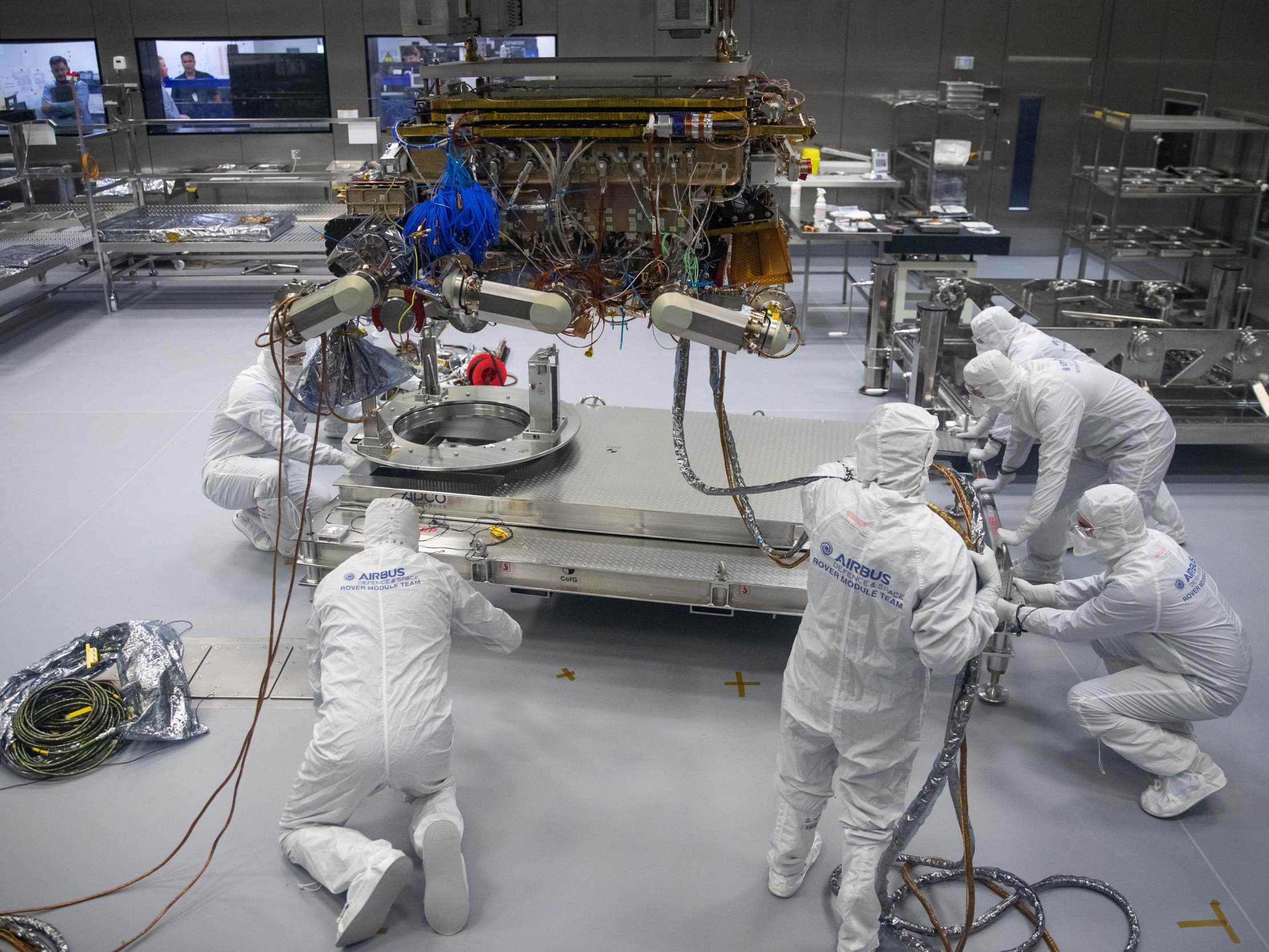‘Rosalind Franklin’ Mars rover complete ahead of Red Planet mission
Testing due to take place in France before planned departure in July 2020

Your support helps us to tell the story
From reproductive rights to climate change to Big Tech, The Independent is on the ground when the story is developing. Whether it's investigating the financials of Elon Musk's pro-Trump PAC or producing our latest documentary, 'The A Word', which shines a light on the American women fighting for reproductive rights, we know how important it is to parse out the facts from the messaging.
At such a critical moment in US history, we need reporters on the ground. Your donation allows us to keep sending journalists to speak to both sides of the story.
The Independent is trusted by Americans across the entire political spectrum. And unlike many other quality news outlets, we choose not to lock Americans out of our reporting and analysis with paywalls. We believe quality journalism should be available to everyone, paid for by those who can afford it.
Your support makes all the difference.The assembly of the "Rosalind Franklin" rover is now complete ahead of its proposed mission to Mars in July next year.
The ExoMars rover, a project of the European Space Agency (ESA) whose production combined the work of British, European and Canadian scientists, has finally been assembled.
It will now be transferred from the Airbus factory in Stevenage to Toulouse in France for testing ahead of its proposed nine-month trip to the Red Planet in search of life.
Named after Rosalind Elsie Franklin, a British scientist whose work was central to the discovery of the structure of DNA, scientists hope it will increase human understanding of Mars.
The six-wheeled robot is a part of the ESA’s ExoMars mission to assess the geological landscape of the planet, as well as its microscopic composition.
Its two-meter drill will attempt to unearth protected elements of life buried beneath the surface.
After two primary tests earlier this year flagged up problems with the rover’s parachute capabilities, the Rosalind Franklin must now pass tests in Oregon, US, in November.
If sufficient progress is not demonstrated, the July 2020 launch date could be in jeopardy.
Dr Graham Turnock, chief executive of the UK Space Agency, said that the achievement establishes “the UK’s leading capabilities in robotics, space engineering and exploration.”
The next stage of testing will examine whether it can endure the tumultuous conditions of space before its confirmed launch.
Pietro Baglioni, the ESA’s ExoMars manager, said: “We hope to find evidence of presence of water, which is already clear from other investigations that we have done from missions to Mars so far”.
He added: "Then signs of possible microorganisms, or things that have been related to the presence of water that can bring us to the concept of possible past life on Mars."
Van Odedra, the Airbus ExoMars rover project manager, said: “This is just another big step of the journey to get to Mars.
“We will have a big sigh of relief when the rover is able to get off the platform, drive down along the ramps and get on to start its mission.”
If it launches as planned next summer, it is due to land on Mars on March 19, 2021.
Join our commenting forum
Join thought-provoking conversations, follow other Independent readers and see their replies
Comments